When accounts receivable start to lag, cash flow suffers and growth stalls. For businesses operating in Singapore, having a practical, compliant, and effective approach to collecting overdue payments is essential. This article outlines B2B debt collection strategies every Singapore business should know, with actionable steps that protect your revenue and customer relationships while keeping you on the right side of local rules.
Why B2B debt collection matters for Singapore businesses
Late payments are more than a nuisance. They increase borrowing costs, reduce the ability to invest, and create operational uncertainty. For small and medium enterprises in Singapore, a single large unpaid invoice can threaten solvency. By adopting structured B2B debt collection strategies, companies can recover revenue faster, deter future lateness, and maintain healthier customer relationships. Choosing a licensed debt collector Singapore agency, such as Info Capital, allows businesses to recover debts efficiently and in line with Singapore’s legal framework.
Understand the Singapore legal framework for B2B debt recovery.
Legal considerations for B2B debt collection in Singapore
Before action is taken, know the rules. Singapore law allows creditors to pursue unpaid commercial debts, but procedural and communication standards must be respected. Documentation is the foundation of any claim. Keep clear contracts, invoices, delivery receipts, and correspondence. If escalation becomes necessary, the Small Claims Tribunals and the State Courts provide formal routes for recovery depending on the amount involved.
When to involve lawyers versus debt collection agencies
Not every overdue invoice needs immediate legal escalation. Use in-house recovery and specialist agencies for most B2B cases. Reserve lawyers for disputed claims, complex cross-border debts, or when court proceedings are inevitable. A reputable debt collection agency can reduce legal costs by resolving cases through negotiation while preparing a legal pathway if required.
Read more about:
- The Legal Process of Debt Recovery in Singapore Explained
- Why Hiring a Professional Debt Collection Agency
Proactive invoice management to prevent debt
Implement clear credit policies for B2B customers.
One of the most effective B2B debt collection strategies every Singapore business should know is to set clear credit terms from day one. Define payment terms, interest or late fees for overdue invoices, and consequences for default. Run routine credit checks on new customers and update limits periodically for long-standing clients.
Use concise, professional invoices to speed payment.
Invoices should be unambiguous and actionable. Include purchase order references, itemized charges, the due date, payment instructions, and a contact person for billing questions. Automating invoice delivery and reminders reduces administrative error and communicates professionalism.
Read more about: Common Mistakes Businesses Make in Credit Management and How to Avoid Them
Automated follow-up and communication strategies
Automated invoice reminders that improve collections
Automated reminder sequences reduce human error and ensure consistent follow-up. Start with a polite reminder a few days before the due date, then escalate the tone gradually with scheduled reminders after the due date passes. Automation frees your team to focus on complex accounts while routine follow-up continues.
Best practice collection letter templates for Singapore B2B clients
Design template letters for each stage of collection: friendly reminder, formal demand, final notice, and pre-legal notice. Maintain a professional, fact-based tone and avoid threatening language. Consistent documentation of every contact is vital if the dispute escalates.
Negotiation techniques that recover more cash, faster
Structured repayment plans for business debt recovery
When a customer is willing to pay but cannot pay in full, structured repayment plans provide a practical way to recover revenue. Propose partial payment plus installment schedules. Require written agreements with clear milestones. This strategy preserves long-term business relationships while restoring cash flow.
Offer early payment incentives and settlement discounts strategically.
In some cases, offering a modest discount for immediate payment yields higher net recoveries than prolonged collection efforts. Use settlement offers selectively and only when they are likely to deliver a positive cash outcome.
When to escalate and how to escalate properly
Pre-legal escalation steps for B2B debt collection in Singapore
Before issuing statutory demands or starting litigation, perform a final formal demand and a pre-action letter that outlines the debt, attempts made to collect, and the next steps. Often, a clear, documented escalation convinces debtors to prioritize payment.
Using mediation and alternative dispute resolution to settle disputes
Mediation can resolve disputes faster and cheaply than litigation. It is particularly suitable when the debt arises from a contract disagreement rather than deliberate non-payment. Mediation preserves confidentiality and can maintain supply relationships that would otherwise be destroyed by court action.
Choosing and working with a collection agency
How to choose a debt collection agency in Singapore
Select an agency with a proven track record in B2B recovery, transparent fee structures, and knowledge of Singapore commercial law. Ask about their success rates, methods of execution, compliance, and communication processes. Ensure they provide regular reporting and that their approach aligns with your company’s values.
Performance indicators to monitor your collection partner
Track metrics such as recovery rate, average days to collect, and percentage of cases resolved without litigation. Regular reviews ensure the agency meets expectations and provides value for the fees charged.
Read more about: How to Choose the Best Licensed Debt Collector in Singapore
Data-driven approaches to reduce future debt.
Using accounts receivable analytics to spot risk early
Identify patterns of late payment by customer, sector, or product. Flag high-risk accounts for closer credit controls or advance payment terms. Analytics can guide targeted efforts and reduce the incidence of future bad debt.
Integrate credit control with sales and operations
Embed credit checks into the sales onboarding process so revenue growth does not come at the expense of higher credit risk. Communicate credit limits and payment performance to account managers so that commercial decisions reflect collection realities.
Preserve relationships while enforcing payment
Communication templates that protect relationships during collection
Maintaining professionalism matters. Use scripts and letter templates that are firm but respectful. A negotiated repayment plan or staged settlement allows you to collect while leaving room for future collaboration.
When to decide that recovery is no longer cost-effective
Sometimes the cost of recovery exceeds the likely return. Set clear thresholds for writing off debts and for when to pursue litigation. Writing off some debts might be more prudent than prolonged collection attempts that drain resources.
FAQs
What is the first step when a B2B invoice becomes overdue?
Ans: Start with a polite reminder immediately after the due date. Follow established automated reminders, then escalate to formal demand letters if there is no response. Document every contact.
When should I engage a debt collection agency in Singapore?
Ans: Engage an agency when internal follow-up yields no results, when you need professional negotiation, or when you want to avoid the upfront costs of legal action. Agencies are effective for uncontested commercial debts.
Are interest and late fees enforceable in Singapore B2B contracts?
Ans: Yes, if the contract includes terms for interest or late payment fees and those terms are reasonable and clearly communicated. Always include these terms in your sales agreements to ensure enforceability.
Can mediation replace litigation for B2B debt disputes?
Ans: Yes. Mediation is often faster, less expensive, and preserves business relationships. It is especially useful when there is a contractual dispute or when both parties prefer a negotiated settlement.
How long does the collection process typically take in Singapore?
Ans: Timeframes vary based on cooperation from the debtor, complexity of disputes, and whether legal action is needed. Effective proactive policies and early escalation reduce overall collection time.
How do I choose the right debt collection agency for my business?
Ans: Choose an agency experienced in B2B recoveries, transparent about fees, and compliant with Singapore laws. Ask for references, success metrics, and sample reports.
Conclusion
Effective B2B debt collection protects cash flow, reduces financial risk, and strengthens long-term stability. By implementing clear credit policies, automating sensible follow-up, negotiating structured repayments when needed, and engaging the right recovery partners, Singapore businesses can reduce days sales outstanding and recover more revenue while preserving customer relationships. Use the strategies outlined here as a practical playbook to improve your collections performance and protect the financial health of your business.
If you need a professional debt collection agency in Singapore, Info Capital ensures legal compliance while offering efficient and effective recovery solutions. Reach out to IFC today to discuss your situation۔


